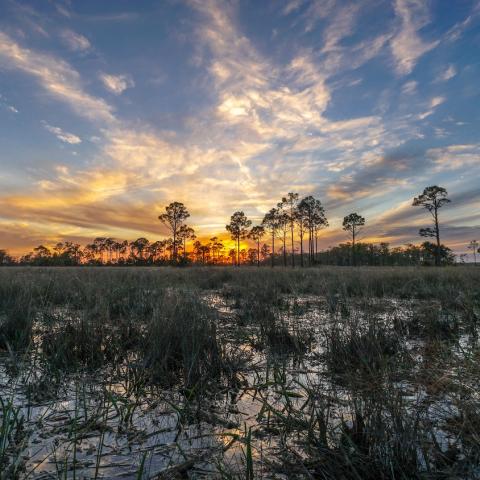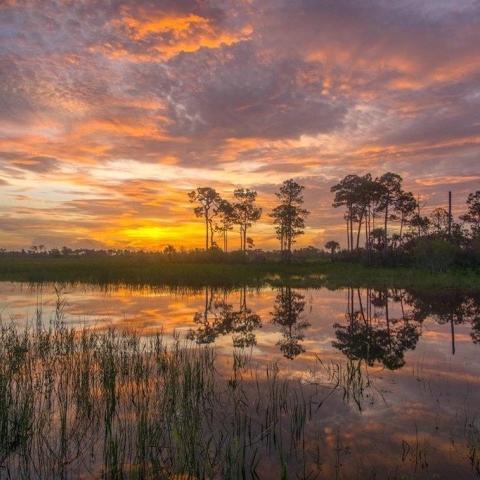
Florida panthers, many of which have habitat in Big Cypress National Preserve and Everglades National Park, died at a record rate in 2016/NPS
Highly endangered Florida panthers died at a record pace in 2016, with most of the deaths attributed to vehicle collisions in just two counties, according to Public Employees for Environmental Responsibility.
A report released Wednesday by the watchdog group cited 42 panther deaths during the past year, tying a record high set in 2015. In 2014, noted PEER, 31 Florida panthers died.
In addition, 2016 also set a record for the number of panthers killed in collisions with motor vehicles – 32, or more than 80 percent of all panther mortality. In 2015, a then-record 30 panthers perished in vehicular accidents, which in turn broke the 2014 record of 25 panther deaths.
“These figures sound the death knell for a sustainable Florida panther population in the wild,” said Jeff Ruch, executive director of PEER, which unsuccessfully sued to win critical habitat designation for the Florida panther. “Without sufficient protected habitat, there is no viable recovery for this alpha-predator.”
North American cougars once had the broadest distribution of any terrestrial mammal in the Western hemisphere. Today, the only population east of the Mississippi, the Florida panther, is confined to a small fragment of their former range in southwest Florida. Many of the cats claim habitat in Big Cypress National Preserve and Everglades National Park. The latest mortality numbers reflect this cramped vestigial habitat – more than 70 percent of last year’s deaths occurred in just two counties: Collier and Lee.
Even this small habitat fragment is shrinking, claimed PEER. Growing human population and sprawling development in south Florida mean less panther habitat and more fatal interactions with humans – and their cars. Without access to more habitat, the long-term prognosis for the recovery of the Florida panther is bleak.
The desperate plight of the panther is underlined by one ray of hope – a female panther has managed to cross the Caloosahatchee River into new range, noted the group. It remains to be seen whether other cats can follow or whether this lone female will survive, let alone find a mate with which to reproduce.
“The fate of the Florida panthers rests with a dismally small and diminishing number of animals,” said Mr. Ruch, noting that the incoming president is himself a Florida real estate developer. “There are currently no coherent efforts at either the state or federal level to save the Florida panther from extinction, and we are unlikely to see one on the horizon.”
At the same time, the Florida Fish & Wildlife Conservation Commission estimates that there are between 100 and 180 animals in the wild – the same estimate FWC has displayed for years, without any updates. Nor does this static estimate reflect the high and growing rate of panther mortality, which in just the past two years alone could represent more than half the remaining population. In addition, FWC figures show fewer panther kittens in 2016 (a total of 14) in numbers that come nowhere close to matching deaths. The latest FWC report calls for more research on panther population dynamics.




 Support Essential Coverage of Essential Places
Support Essential Coverage of Essential Places







Add comment